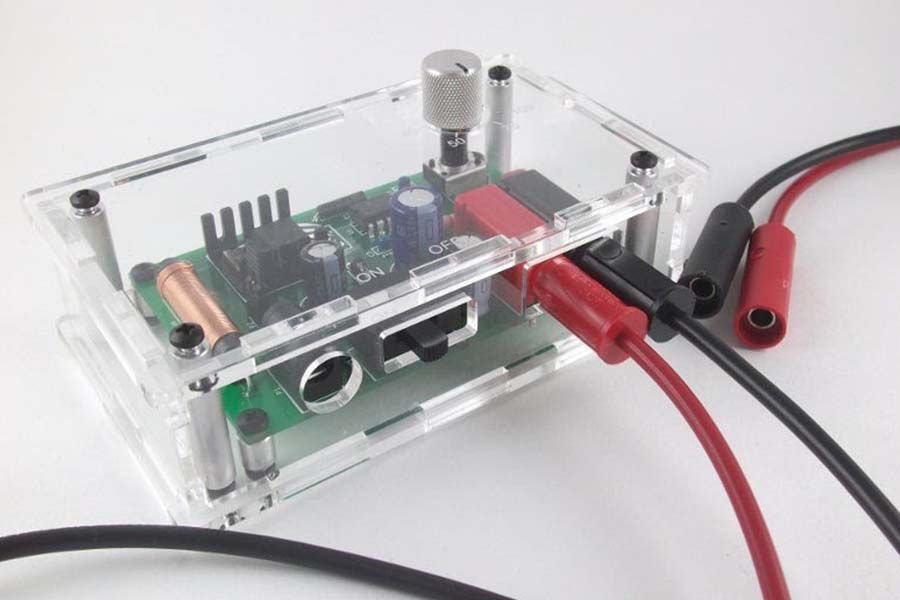
Power Supply: The Unsung Hero of Biotech Labs
In the fast-paced world of biotechnology, where precision and reliability are paramount, one critical component often goes unnoticed: the power supply. At Vetrona Biotechnology, we recognize that the success of your research and operations hinges on the quality and consistency of the tools you use. A reliable power supply is essential for ensuring that your lab equipment functions optimally, delivering accurate and reproducible results. In this post, we’ll explore the importance of power supplies in biotech labs, the different types available, how to choose the right one, and best practices for maintenance.
What is a Power Supply in Biotech Labs?
A power supply is a device that provides electrical energy to lab equipment, converting input power (typically from a wall outlet) into the specific voltage and current required by instruments such as electrophoresis systems, PCR machines, spectrophotometers, and more. In biotech labs, where experiments often demand precise control over electrical parameters, the power supply is a critical link between your equipment and the success of your research.
Why is a Reliable Power Supply Crucial?
A stable and appropriate power supply is essential for several reasons:
- Accuracy: Many biotech instruments, like electrophoresis systems, require consistent voltage to separate molecules effectively. Fluctuations in power can lead to inconsistent results or failed experiments.
- Equipment Longevity: Over- or under-voltage can damage sensitive components, shortening the lifespan of your lab equipment.
- Safety: A high-quality power supply includes safety features like overload protection and short-circuit prevention, reducing the risk of accidents in the lab.
Investing in a reliable power supply is not just about convenience—it’s about ensuring the integrity of your research and the safety of your team.
Types of Power Supplies in Biotech Labs
There are several types of power supplies used in biotechnology, each suited to different applications:
- Linear Power Supplies: These provide a stable output with low electrical noise, making them ideal for sensitive equipment like analytical instruments that require precise measurements.
- Switching Power Supplies: More compact and energy-efficient, these are perfect for applications where space and power consumption are concerns, such as in automated or high-throughput systems.
- Programmable Power Supplies: These allow users to set specific voltage and current levels, offering flexibility for experiments that require precise control, such as protein electrophoresis or DNA sequencing.
Understanding the differences between these types will help you select the best power supply for your specific needs.
How to Choose the Right Power Supply
Selecting the right power supply involves evaluating several key factors:
- Voltage and Current Requirements: Ensure the power supply can deliver the necessary voltage and current for your equipment. Check the specifications of your instruments to match them with the power supply’s output.
- Stability and Precision: For sensitive applications, choose a power supply with low ripple and noise to avoid interference with your results.
- Safety Features: Look for built-in protections like overload, short-circuit, and thermal shutdown to safeguard both your equipment and personnel.
- Ease of Use: User-friendly interfaces, digital displays, and programmability can streamline your workflow and reduce the risk of errors.
By carefully considering these aspects, you can select a power supply that enhances both the efficiency and safety of your lab.
Maintenance and Safety Tips
Proper maintenance is key to ensuring your power supply performs reliably over time:
- Regular Inspections: Check for signs of wear, such as frayed cables or overheating, which can indicate potential issues.
- Cleanliness: Keep the power supply and its surroundings free of dust and debris, as buildup can affect performance and cooling.
- Calibration: Periodically calibrate the power supply to maintain accurate voltage and current output.
- Follow Manufacturer Guidelines: Always adhere to the manufacturer’s recommendations for usage, maintenance, and safety precautions.
These simple steps can extend the life of your power supply and ensure it continues to meet the demands of your lab.
Power Supply in the Biotech Workflow
In biotech labs, power supplies are integral to many workflows:
- Electrophoresis: Providing the precise voltage needed to separate DNA, RNA, or proteins.
- PCR: Powering thermal cyclers for DNA amplification.
- Spectrophotometry: Ensuring consistent power for accurate absorbance readings.
A dependable power supply ensures that each step of your experiment runs smoothly, contributing to the overall success of your research.
Advances in Power Supply Technology
Recent innovations have made power supplies more efficient and user-friendly:
- Digital Control: Modern power supplies offer digital interfaces for precise control and monitoring.
- Energy Efficiency: New designs reduce energy consumption, making labs more sustainable.
- Compact Designs: Space-saving models are ideal for crowded lab environments.
At Vetrona Biotechnology, we stay at the forefront of these advancements, offering cutting-edge power supplies that meet the evolving needs of biotech research.
Conclusion
A reliable power supply is a cornerstone of any successful biotech lab. By choosing the right type, ensuring proper maintenance, and leveraging the latest technology, you can optimize your lab’s performance and safety. At Vetrona Biotechnology, our range of high-quality power supplies is designed to meet the rigorous demands of biotech research, providing the precision and reliability you need.
For more information on our power supply solutions, visit our website or contact our team today.